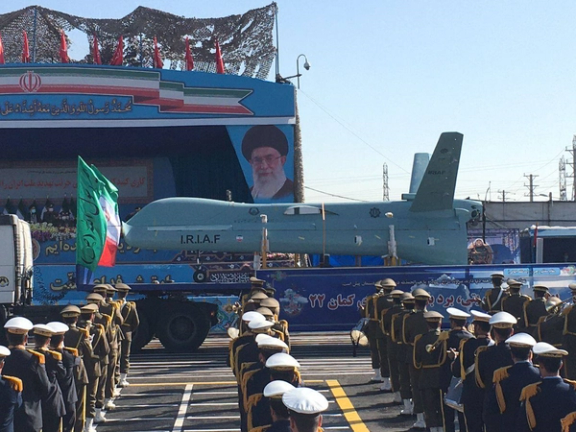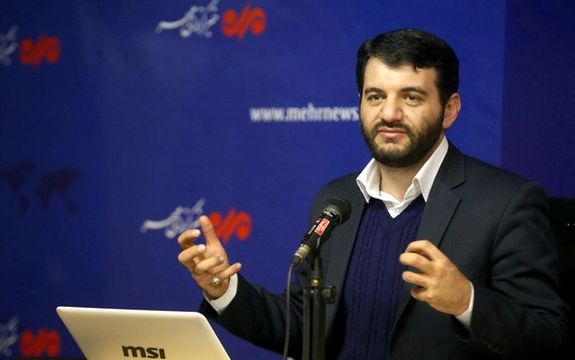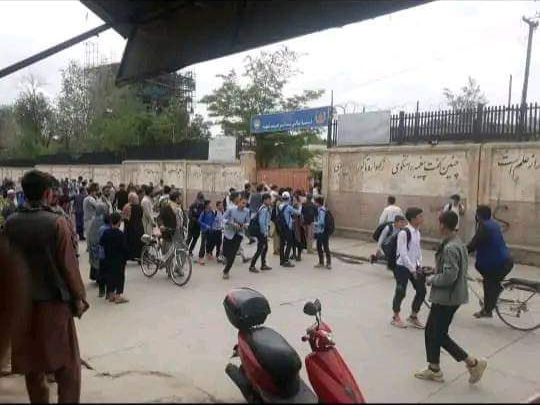Prominent Iranian Rights Activist Denied Heart Medication In Jail

Iranian civil and human rights defender Narges Mohammadi who has returned to prison after an open-heart surgery is denied her medications, her lawyer says.

Iranian civil and human rights defender Narges Mohammadi who has returned to prison after an open-heart surgery is denied her medications, her lawyer says.
Mostafa Nili said on Tuesday that despite the delivery of the medicines to the Qarchak Prison, the authorities have refused to hand them over to Mohammadi, who was on furlough for the surgery until last week.
He said that Mohammadi has a coronary stent in one of her main arteries and must take her heart medication regularly.
Nili added that any delay in taking the medications can make the treatment process ineffective and even endanger her health.
Taghi Rahmani, her husband, had told Radio Farda that doctors believe she needed a longer period of recovery before she had to return to prison.
In a five-minute trial in late January, she was sentenced to eight years in jail and 70 lashes by Branch 26 of the Revolutionary Court, for trumped-up political chagres.
Mohammadi was arrested in November last year at the death anniversary of a victim shot by security forces during the November 2019 protests, reportedly while shopping.
She has been to jail several times over the past two decades. She was freed from Evin Prison in September 2020 after serving more than five years when she had no contact with her husband and children for long periods of time.
Persecution of human rights and political activists and executions have increased since hardliner president Ebrahim Raisi took office last August.

A man with an Iranian name and an accomplice with Pakistani ties who were arrested in Washington DC for impersonating federal agents have been indicted by a federal grand jury.
Arian Taherzadeh and Haidar Ali were arrested earlier this month by the FBI when it came to light that they were impersonating Homeland Security agents and had established ties with Secret Service agents, lavishing gifts on them. One agent was a member of First Lady jill Biden’s protection detail.
They were indicted Tuesday on charges of false impersonation of a federal agent and possession of a large-capacity ammunition device. The suspects had a range of law enforcement paraphernalia in their possession when they were arrested, including body armor and surveillance equipment.
Their scheme required a considerable amount of money, and it is not clear how they financed their operation. They offered expensive rent-free apartments, guns, iPhones and other gifts to federal agents.
A judge on April 8 released them from detention on the grounds that prosecutors had not established a foreign connection, but Haidar Ali’s passport shows he had Iranian visas and might have traveled to Iran in recent years.
It is not clear if prosecutors will appeal the decision of the judge to release the suspects into the custody of their families after the grand jury indictment.

Iran’s Revolutionary Guard (IRGC) and the traditional Army commanders on Tuesday claimed they have achieved progress in building unmanned aerial vehicles.
IRGC Commander-In-Chief Major General Hossein Salami and Army Commander-in-Chief Major General Abdolrahim Mousavi, speaking at a ceremony described the country’s drone industry as “valuable and empowering”.
“Manufacturing UAVs with its various technologies is very significant today in both the Army and the IRGC”, Salami said.
Praising the self-sufficiency in military technology in the Army, especially in the Air Force, Mousavi said the Army has made good progress in building fighter jets and helicopters and their components.
Most of Iranian-made fighter jets, such as Kowsar, Saeqeh, and Azarakhsh, are mainly based on the American Northrop F-5, with some analysts describing them to be inefficient as a weapon but having potential for training a new generation of fighter pilots.
The US and Israel pioneered the use of drones in the Middle East, although China has now become a major supplier, selling to Egypt, Iraq, Saudi Arabia, and the United Arab Emirates. Iran and Turkey have developed indigenous production.
The two military commanders also stressed the importance of closer cooperation and focusing their efforts on areas such as electronic warfare – using electromagnetic spectrum or directed energy to an enemy or impede enemy assaults.
Iran showcased some of its latest drones Monday on Army Day, including the "strategic multi-functional combat drone" Kaman-22 and the single-engine multirole tactical drone Ababil-5.

In a first-ever revolt by Iranian government employees against a cabinet minister, hundreds gathered on Tuesday to reject Hojjat Abdolmaleki's leadership.
Twitter users in Iran reported that some employees also gathered at the ministry's parking area and courtyard chanting slogans against Labor Minister Hojjat Abdolmaleki who had told the press in February that he had fired over 1,000 employees.
Pictures of the protest published by Iranian news outlets including Rouydad24 website, show the employees waiting for the minister to come forward and answer their questions. However, he did not leave his office at the ministry.
Employees also accused Abdolmaleki of launching a publicity to show off his "achievements" despite criticisms by staff and the media over his populist behavior. Some Twitter user published a publicity poster, adding that Abdolmaleki has used the ministry's funds to showcase his performance. Several members of the Iranian parliament have said that Abdolmaleki will be one of the first Raisi ministers to be impeached as soon as the parliament’s leadership allows impeachment motions to be tabled and go forward.
Reports from Tehran say Deputy Labor Minister Mohammad Reza Hosseini tried to calm the protestors, but his effort was not successful. The employees chanted "Payments with Justice" demanding fair pay.
One employee told Rouydad24: "It is ironic that the staff of other government and private companies come to the labor ministry to voice their grievances while its own employees have nowhere to go to seek relief for their grievances."

Another employee asked: "How can the labor minister manage the situation of unemployment in the country while he cannot sort out the problems in his own ministry?" He reminded that Abdolmaleki promised to quickly create millions of jobs in Iran at low cost, but it never materialized.
Other employees criticized the minister and his aides for putting on a show rather than working to solve staff problems. One employee told reporters that Abdolmaleki made no plans to tackle unemployment in Iran since he assumed office eight months ago. Earlier, Abdolmaleki had said in an odd comment that "Creating jobs was not among the responsibilities of the labor ministry."
Criticism of other economic ministers of the Raisi administration has also been on the rise during the past months. Lawmaker Behrouz Mohebbi on Tuesday harshly criticized Industry Minister Reza Fatemi Amin who is also on the parliament's impeachment list, charging that he has not met any one of the many promises he made before joining the government.
Mohebbi further charged that the managers of car manufacturing companies affiliated with the Ministry of Industry drive foreign cars and do not care about the rising price and falling quality of Iranian-made cars. "If they used Iranian cars, they would have made efforts to improve the quality of domestic products at least for their families' safety," he said.
Mohebbi also criticized the minister for failing to control the car market. According to the media last week, the price of a basic old model compact car called Pride, rose by 400 million rials ($1,600) overnight and reached 2 trillion rials.
Mohebbi said, "when Fatemi Amin's credentials were being reviewed at the parliament, he promised to put an end to the monopoly of the two car makers affiliated with the ministry, to boost production and to improve quality. Some eight months on, none of these promises have materialized." He reminded Fatemi Amin that even Supreme Leader Ali Khamenei has acknowledged that people are unhappy about his ministry's performance.

Greece has impounded a Russian oil tanker off the island of Evia, the Greek coastguard said on Tuesday. A US advocacy group said it was carrying Iranian oil.
A Greek shipping ministry official said the 115,500-tonne Russian-flagged Pegas, with 19 Russian crew members, had been seized under European Union sanctions imposed on Russia over the Ukraine crisis.
The vessel was seized near Karystos on Evia’s southern coast, just off the mainland near Athens. Earlier this month, the EU banned Russian-flagged vessels, with exemptions, from its ports.
The US advocacy group United Against Nuclear Iran (UANI), which supports US sanctions against Iran and monitors tanker traffic through satellite tracking, said the Pegas − renamed the Lana in March − had loaded 700,000 barrels of crude oil from Sirri island, Iran, on August 19, 2021. The tanker headed to Greece after trying unsuccessfully to unload the oil at a Turkish port, UANI said.
The Athens News Agency reported that before being seized, Pegas had a breakdown and was being pulled by tugs to Greece's Peloponnese peninsula, where its cargo was to be moved to another vessel, and that during this journey it was forced by rough seas to moor near Karystos, where it was seized by Greek port authorities.
Associated Press reported the seizure was Friday. Reuters cited witnesses Tuesday that the Peags was still moored at Karystos bay, and was told by the Greek coastguard that the tanker’s cargo had not been impounded.

Iran has condemned a terrorist attacks at a boys’ high school and other educational institutions in a Shia-dominated neighborhood of the Afghan capital, Kabul.
In a tweet on Tuesday, Foreign Ministry spokesman Saeed Khatibzadeh censured what he said was Takfiri terrorists shedding the blood of innocent teenagers, urging Taliban officials to identify and punish the perpetrators.
Iranian officials use Takfiri as a vague umbrella term to refer to Sunni dissident or extremist groups and individuals, including the Islamic State (ISIS), alleging that they are organized by western powers and Wahhabis.
Earlier in the day, at least six people were killed, and 25 others were injured after three huge explosions ripped through two educational centers in western Kabul.
A tutoring center in a neighborhood mostly populated by the Shia Hazarah community in the western part of Kabul was targeted with a grenade before two back-to-back blasts targeted a boys’ high school located in the same area.
Initial reports suggested the attack was conducted by suicide bombers, but Kabul police spokesman Khalid Zadran said improvised explosive devices had been placed in backpacks and left outside the school.
No group has so far claimed responsibility for the attack, but the Islamic State militants targeted the area in multiple times between September and December 2021.
Hazaras are an ethnic and religious minority that are frequently targeted by Sunni militant extremists, who regard them as heretics.